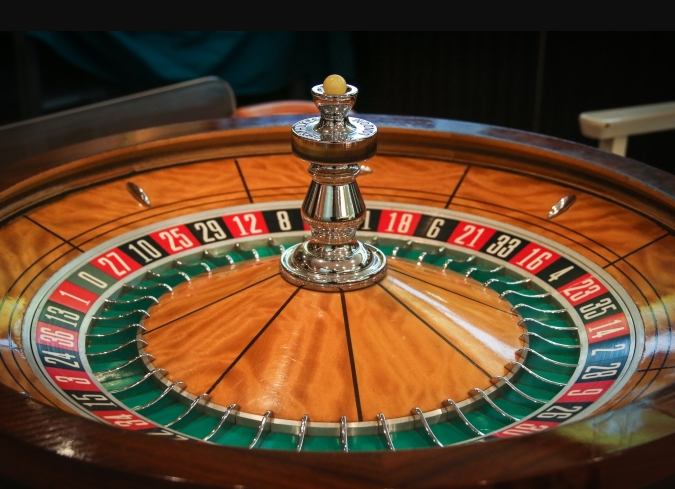Casino Guru and BetBlocker are teaming up to expand responsible gambling tools into Finland, giving Finnish players access to anonymous, easy-to-use blocking software in their own language. The move highlights growing attention to problem gambling across Europe and the role of technology in supporting vulnerable players.
Finnish Language Support Opens New Doors
For years, gambling harm support tools have been heavily skewed towards English speakers. Many players who didn’t feel confident in English often struggled to use tools effectively, if they found them at all. Now, BetBlocker’s software — widely recognised in the UK and beyond — is being localised into Finnish, thanks to Casino Guru’s continued efforts in expanding responsible gambling resources.
This isn’t just a matter of convenience. Language shapes understanding, and when a player is stressed or in crisis, being able to use support tools in their own mother tongue can mean the difference between seeking help and staying silent.
Finland, with a long history of both state-run and private gambling, has been reviewing its gambling framework amid increasing concerns about addiction. Officials estimate that nearly three percent of Finland’s adult population struggles with some form of gambling-related harm. That makes the timing of this expansion all the more significant.

Partnership with a Purpose
The collaboration between Casino Guru and BetBlocker isn’t brand new, but its scope is widening. Casino Guru has been pushing safer gambling measures globally, from its Safety Index to its Global Self-Exclusion Initiative, which aims to create cross-border consistency in gambling restrictions. BetBlocker, meanwhile, has positioned itself as an anonymous, free-to-use blocking solution.
Bringing the two together creates a synergy. Casino Guru provides the data, insights, and reach. BetBlocker provides the tool. Together, they’re chipping away at what has long been considered one of the industry’s biggest blind spots — accessibility.
One short sentence is enough here. It’s about making the service truly usable.
Why Finland Matters in the Gambling Debate
Finland might not be the largest gambling market in Europe, but it represents a fascinating test case. For decades, the Finnish system was unique: a state monopoly, Veikkaus, controlled almost all gambling. But with the rise of online platforms and cross-border operators, that model has been breaking down.
Regulators are now considering moving towards a licensing-based model by 2026, similar to what Sweden adopted in 2019. Under such a system, private companies could apply for licenses but would be held to strict responsible gambling requirements.
So, tools like BetBlocker aren’t just a voluntary add-on anymore. They could soon become part of compliance frameworks, where licensed operators are expected to promote, or even integrate, such software. That gives this partnership a regulatory relevance beyond its immediate user base.
Interestingly, Finland has one of the highest gambling participation rates in Europe. Some surveys suggest that over 70% of adults gamble at least once a year, compared with around 45% in the UK. That contrast makes localised harm reduction tools especially urgent.
Tackling the Language Barrier Head-On
One of the core issues addressed here is deceptively simple: language. Many global gambling companies boast of their multilingual platforms, yet support tools often lag behind. Casino Guru has been systematically translating its database and educational content into multiple languages, betting that accessibility will drive both awareness and action.
Here’s what’s on offer in Finnish now:
-
The full BetBlocker application interface, menus, and options translated into Finnish.
-
Casino Guru’s responsible gambling articles and help guides available in Finnish.
-
Integration of Finnish-language self-exclusion resources, connecting local and global support.
That bullet list is important because it shows tangible results rather than abstract promises.
And yes, this move matters beyond Finland. Localisation can be rolled out to other countries with similar needs, whether that’s Hungary, Slovakia, or non-European markets like Brazil.
Responsible Gambling Efforts in Numbers
To put this in perspective, let’s compare Finland’s situation with a few others. The following table highlights recent figures:
| Country | % of Adults Gambling Annually | Estimated Problem Gambling Rate | Main Responsible Gambling Tool |
|---|---|---|---|
| Finland | 70%+ | ~3% | BetBlocker (via Casino Guru) |
| United Kingdom | ~45% | 0.5–0.8% | GamStop + BetBlocker |
| Sweden | ~58% | 1.3% | Spelpaus + third-party tools |
| United States | ~60% | 2–3% (varies by state) | BetBlocker + state programmes |
This table helps show why Finnish localisation isn’t just symbolic. The country has both a high participation rate and a relatively high harm percentage compared with its neighbours.
One line here is enough. The numbers speak loudly on their own.
Industry Reaction and What Comes Next
The gambling industry’s reaction has been mixed. On one hand, charities and advocacy groups have praised the initiative, calling it a long-overdue step towards inclusivity. On the other, some operators quietly worry that such tools could cut into revenues if too many players self-exclude.
That tension is nothing new. Safer gambling has always had to balance commercial interests with public health goals. But in an age where regulatory pressure is mounting, companies that fail to support initiatives like this risk reputational damage and possible penalties.
Casino Guru has hinted that Finland won’t be the last. Discussions are ongoing to extend similar localisation projects to other European markets where gambling participation is high but support resources remain scarce.
The big question is whether governments themselves will step in and mandate such translations. If they do, tools like BetBlocker could go from optional add-ons to required safeguards.
And for players struggling in silence, that could change everything.








